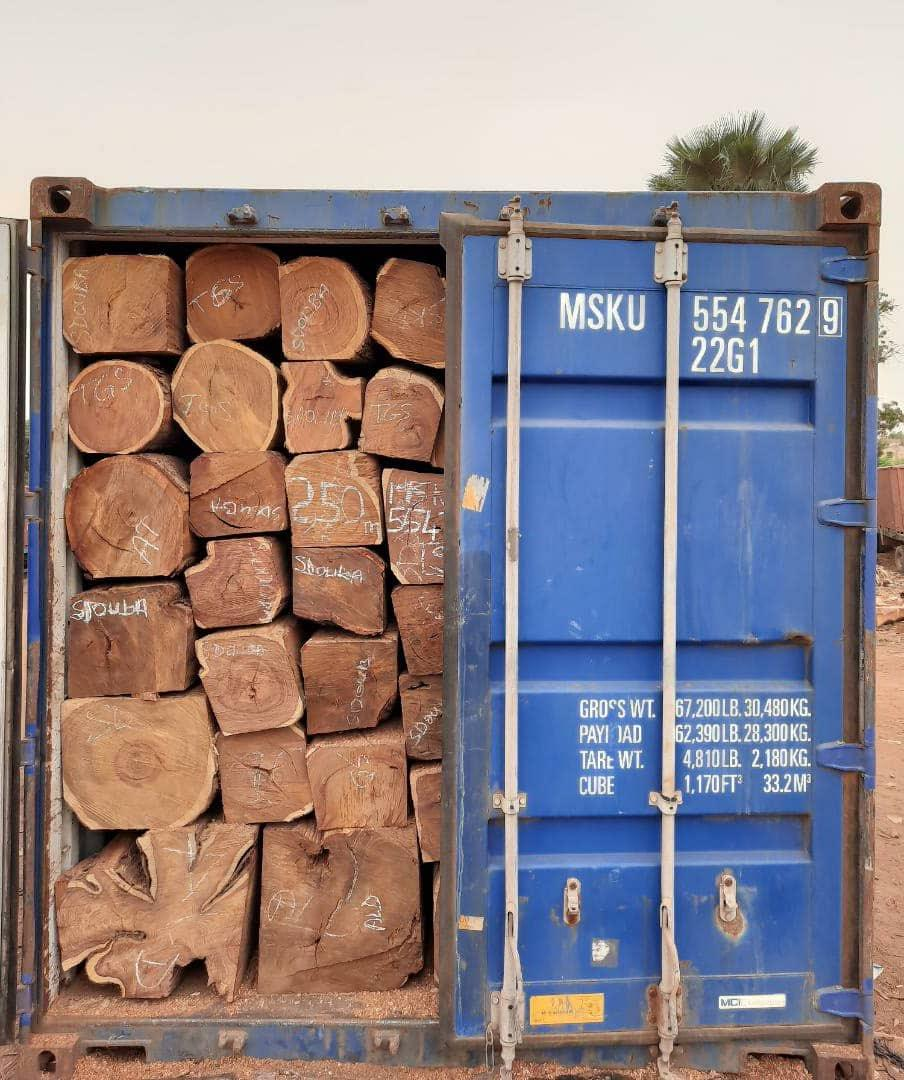Unfortunately, due to retaliation, Amadou Traoré was forced to flee his home country. His revelations led to the adoption of measures to halt the trafficking, resulting in the blocking of certain containers at ports and borders. These measures have been renewed, further exposing the whistleblower to reprisals.

The information and documents shared by the whistleblower led to the establishment of a consortium of Senegalese journalists, coordinated by PPLAAF. This consortium of journalists was trained in Dakar in September 2022 on whistleblowing and financial crime, organized by PPLAAF and Expertise France as part of the OCWAR-M project.
“Even though Amadou Traoré’s initial disclosures are dated, his alert remains relevant today as rosewood trafficking continues to persist,” said Jimmy Kande, Director of PPLAAF in West Africa. “PPLAAF remains committed to putting an end to deforestation.”
With support from the Pulitzer Fund and under the coordination of PPLAAF, the consortium conducted an in-depth investigation into rosewood trafficking for approximately a year. The initial results of this investigation were published in July 2023 in three Senegalese media outlets: L’Enquête, GFM and Sen TV.

The investigations have uncovered a series of alarming events linked to the massive plunder of rosewood, also known as “bois de Vène”, in the forests of Mali. According to the journalists, Chinese traffickers, in collusion with businessmen and authorities in Senegal and Mali, manage to exploit Malian forests by paying bribes to local village chiefs.
Initially centered in Casamance, Senegal, Chinese traffickers and their accomplices in the region used the Gambia as a transit point to ship the wood to Asia, particularly China. However, with the depletion of wood stocks in Casamance, the trafficking shifted south-eastwards along the border with Mali, particularly in the Tambacounda and Niokolo-Koba regions. Although Mali is the epicenter of this traffic, Senegal is also involved as a transit and supply country.
While trade in Pterocarpus erinaceus (Rosewood) has been suspended by the Convention on International Trade in Endangered Species of Wild Fauna and Flora (CITES), traffickers are reported to have successfully influenced certain authorities to obtain illegal derogations allowing them to cut and export the wood. The Saraya region, located in the Kédougou region of Senegal, is mentioned as a possible wood harvesting area, although tangible evidence is lacking, according to local officials. Controls along this route are limited, making it difficult to detect wood trafficking.
Wood cut in Mali is said to primarily pass through Senegal, particularly through the port of Dakar. According to journalists, in August 2022, Senegalese authorities cracked down, seizing 124 containers of Malian rosewood. Mali reportedly managed to lift the seizure by invoking a CITES exemption. However, rosewood trafficking persists and is now, according to journalists, being routed through Mauritania.
This lucrative trade is a significant source of income for the traffickers and their accomplices, who transport the wood to the Chinese market, where demand for rosewood is very high. The traffickers are also said to rely on the routes used by major international shipping companies.
The consequences of this trafficking are concerning for biodiversity and the local environment. In this regard, Amadou Traoré explains that “to access and section a large centuries-old tree, it is necessary to fell dozens of young saplings.'” Environmentalists in Mali and Senegal are concerned about the lack of effective controls and the considerable power of transporters on the roads. Although random checks are carried out periodically, rosewood trafficking remains a major challenge in the region.
PPLAAF is a non-governmental organization established in 2017 to protect whistleblowers, as well as to advocate and engage in strategic litigation on their behalf when their revelations deal with the general interests of African citizens.
To read, watch or listen the journalists’ investigations, please visit:
For more information on PPLAAF, please visit:
PPLAAF’s website: https://pplaaf.org
Facebook: https://www.facebook.com/PPLAAF/
Twitter: @pplaaf
Email: [email protected] |

